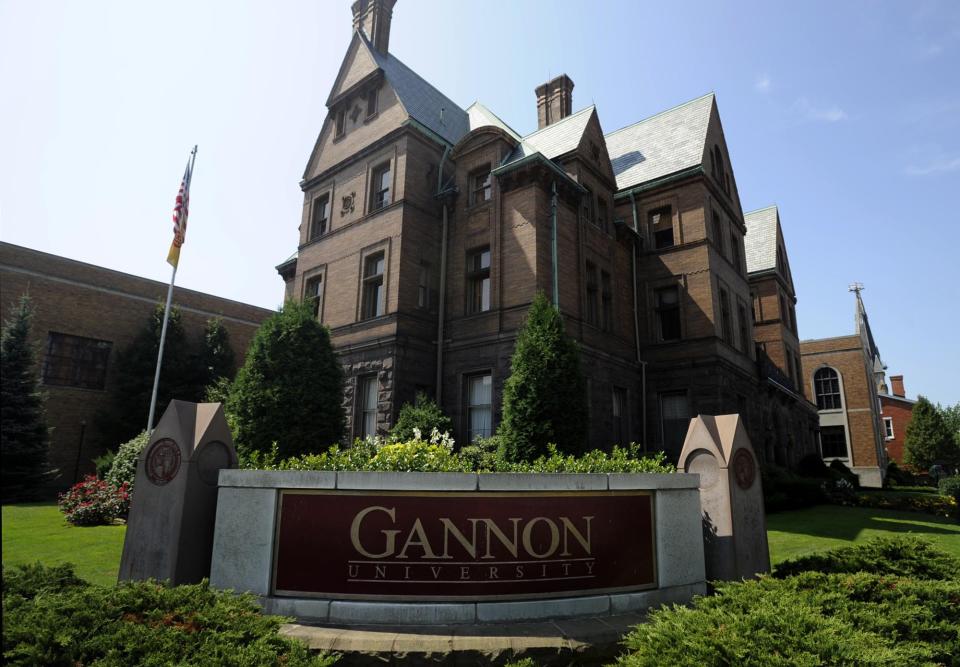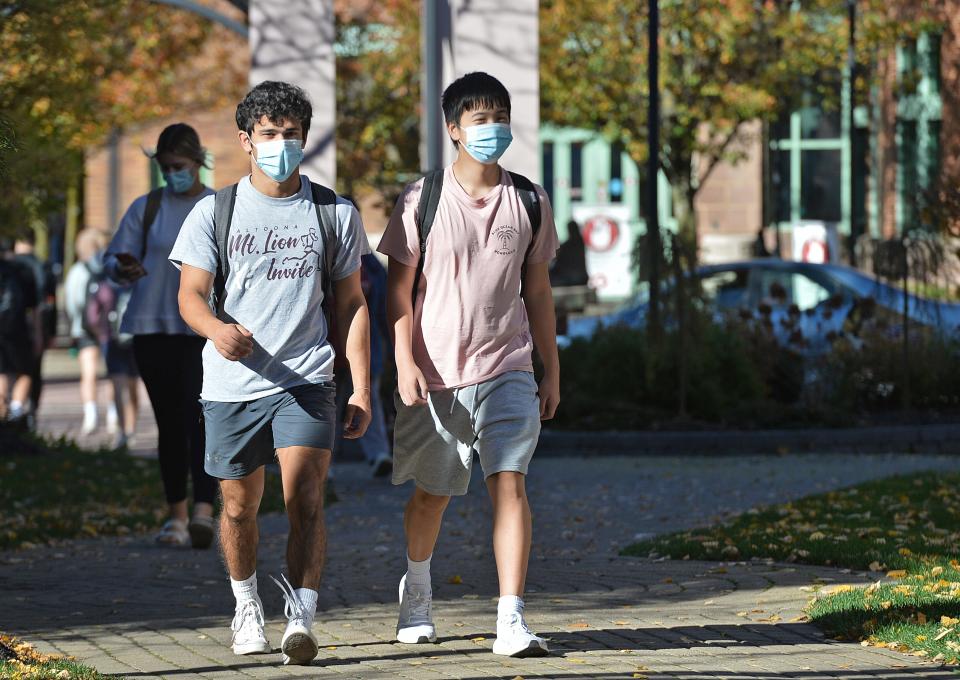Gannon to pay $1.1 million to settle class-action suit over COVID-era remote instruction
Gannon University has agreed to pay $1.1 million in a proposed settlement to end a federal class-action lawsuit related to the pandemic.
A judge still must approve the agreement, which will add the downtown Erie school to the list of other colleges and universities that have reached similar deals nationwide.
The settlement is meant to reimburse students for in-person tuition and other costs that Gannon continued to charge after the COVID-19 outbreak forced classes to go online in the spring semester of 2020.
A former student launched the class-action case as the lead plaintiff by suing Gannon in U.S. District Court in Erie in August, claiming breach of contract and unjust enrichment.
The former student, Andrew Engel, claimed in court records that Gannon is liable for pro-rated refunds for still charging in-person costs but failing "to deliver an in-person education" after the school "constructively closed the campus" and sent him and 3,900 or so other students home to take classes remotely.

Gannon resumed in-person classes in August 2020. The return included testing of students for COVID-19.
Gannon denied liability in the case and will admit no wrongdoing with the settlement, according to court records. Gannon supports the preliminary approval of the agreement, according to a brief that Engel's lawyers filed in support of the deal. The lawyers filed the brief and proposed settlement on Thursday.
Gannon cited the potential cost of the litigation as a reason for settling. It defended how it handled the pandemic.
"Gannon’s response to the COVID-19 pandemic and the decisions that needed to be made were done with the best interest of our Gannon community’s safety and well-being in mind," the president of Gannon, Walter Iwanenko, said in a statement to the Erie Times-News. "We believe the actions we took were the right ones for our students and employees, and we are proud of our COVID response efforts.
"We believe the time and resources it would take to contest this lawsuit would distract us from the current work for our students and community that deserves our focus at this time.”
A lawyer for Engel, Nicholas Colella, of Pittsburgh, did not immediately respond to a request for comment.
How much would class members get in Gannon deal?
About 3,900 individuals make up the members of the affected class, according to the proposed settlement. It defines eligible class members as "all graduate and undergraduate students who paid tuition and/or the mandatory fees to attend in-person classes during the Spring 2020 semester at Gannon but had their classes moved to online learning."
The class members would not get full refunds, but amounts based on pro-rated reimbursements that would consider the cost of in-person tuition and the cost of online instruction, among other factors, according to court records.
The amount each class member would receive out of the $1.1 million depends on how many class members opt out of the settlement. Other factors, according to court records, include the amount of each member's tuition and fees in the the spring of 2020 and deductions for attorney's fees and other litigation costs.
Engel's lawyers are proposing attorney's fees of no more than the typical 33.33% — a percentage that, applied to the $1.1 million, would reduce the settlement amount by about $367,000, or to $733,000. Divided among 3,900 students — and not accounting for possible adjustments — the $733,000 would lead to payments of about $188 per class member.

The proposed settlement is before U.S. District Judge Susan Paradise Baxter. Her approval would trigger the process of notifying class members and calculating the individual payments, legal fees and other costs, according to court records. Baxter would have to sign off on a final deal, which would include updated numbers.
Other universities, colleges also settling pandemic cases
Gannon replied to the lawsuit in a court filing in September. The university said it acted properly by suspending in-person classes on March 16, 2020, in response to then-Gov. Tom Wolf's order to temporary close all "non-life sustaining businesses" in light of the COVID-19 pandemic.
Among its defenses, Gannon said in the filing, is that it "acted in good faith" and "without any intent to deprive plaintiff Andrew Engel (or any of the alleged class members) of any benefit to which they were entitled."
Colleges and universities nationwide have been settling similar class-action cases.
Among them are Brown University in Rhode Island, which set aside $1.5 million for about 9,500 students, and Monmouth University in New Jersey, with $1.3 million for about 4,200 students, according to the brief that Engel's lawyers filed.
The lawyers pointed to the settlements at other institutions as evidence of the "strength" of the $1.1 million deal in the Gannon case, according to their brief. The lawyers said a strategy of declining to settle would have had drawbacks.
"While Plaintiff believes he would have prevailed" in court, according to the brief, "Plaintiff acknowledges there are risks involved in this litigation — a relatively new area of the law — including the existence of an implied contract, or that Gannon has been unjustly enriched."
Contact Ed Palattella at epalattella@timesnews.com. Follow him on X @ETNpalattella.
This article originally appeared on Erie Times-News: Gannon to pay $1.1 million in lawsuit over COVID-era online classes

